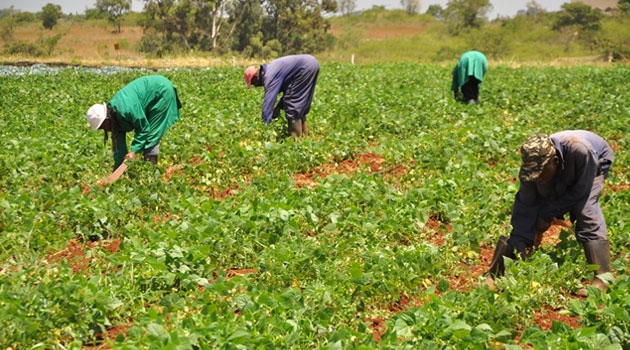Some city returnees currently undertaking rainy season farming in the South-South region have decried the lack of support from the government.
The farmers said in a survey that wet season farmers face challenges in the South-South region.
The farmers also urged the state governments in the region to support them with funds and farm inputs.
They further urged the governments to quickly address the security challenges in some communities to enable farmers to cultivate without fear.
Some unskilled workers in the cities are returning to their communities to embark on rainy season farming. One of them, Richard Ndoma, an indigene of Ikom in Cross River, said that lack of funds and seeds was a major challenge to his interest in establishing a large cassava farm in his community.
Mike Ewa, from Boki, also said the current economic situation in the country had affected his plan for massive investment in farming during the rainy season.
Elijah Ugani, from Yala, shared similar views with Ndoma and Ewa and joined the call for government support.
When contacted, Cross River’s information commissioner, Erasmus Ekpang, said Governor Bassey Otu’s government was committed to supporting all categories of farmers in the interest of food security and sufficiency.
In Rivers, the farmers also called for government support and described wet season farming as an opportunity to eliminate hunger and poverty.
The farmers who described the wet season as the best crop yield stated that the benefits of rain to the soil and crops were numerous and should not be undermined.
Godwin Akandu, the Etche Farmers Cooperative Union president, said that the rains provided a “rich opportunity” for non-mechanised farmers to cultivate their crops.
Mr Akandu, who cropped mainly cassava, yam, cocoyam and vegetables, said that although the rains could boost plant growth and yield, excessive rainfall could erode soil nutrients.
Imelda James, from Abua, stated that excessive weed was a huge challenge to rainy season farming.
Ms James, who said Abua was known for producing yam, plantain, banana, and vegetables, said the lack of fertilisers had negatively affected crop yield.
In Akwa Ibom, the farmers said that although wet season farming was capital-intensive, it could be rewarding if the right measures were taken.
Akpan Inem, from Ibiono, said wet season farming should be considered a serious economic activity, not a venture for the frustrated in society.
Mr Inem said the government at all levels should support citizens who showed interest in wet season farming to boost local food production.
He said it took serious discipline and a sense of commitment for people to leave the cities to cultivate farms during the rainy season.
Aniedi Edet, a civil servant in Ikot Ekpene, said that a lack of funds to invest had plagued his interest in wet season farming.
Speaking at a recent public function, Owoidighe Ekpoattai, the special adviser to Mr Eno on agricultural development, said the state government was willing to support anyone genuinely ready to return to the farm.
































